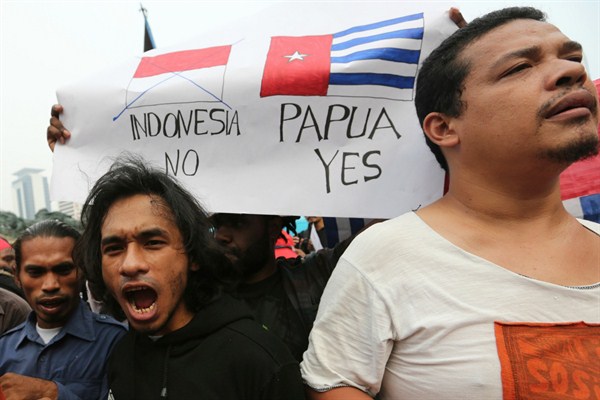In late September, an exiled political dissident and pro-independence leader from the Indonesian territory commonly known as West Papua submitted a petition to the United Nations calling, in part, for a vote on West Papua’s independence from Indonesia. The petition was reportedly signed by a large majority of native Papuan people before it was smuggled out of the territory. But the U.N. refused to accept it, in the latest setback for an independence movement that goes back decades. In an email interview, Greg Earl, a columnist for the Lowy Institute’s The Interpreter and a member of Australia’s ASEAN Council, discusses the history of the West Papuan independence movement, the fate of the petition at the U.N. and how the struggle relates to other leftover colonial fault lines in Southeast Asia.
WPR: Why are West Papuans pushing for independence from Indonesia, and how has this effort evolved?
Gregory Earl: Papuans from the Indonesian half of the island of New Guinea, commonly referred to as West Papua, feel they have been harmed by a steady flow of migrants from more populous parts of Indonesia over the past four decades and by mining concessions issued to foreign companies by the central government in Jakarta. This migration originally involved the organized transfer of Javanese farmers to West Papua—then called Irian Jaya province—by the government, but more recently it has been natural migration from neighboring islands. Indonesian Papuans also feel they have stronger cultural links to neighboring Papua New Guinea and other nations further east in the Pacific, which together make up the Melanesia Spearhead Group.

